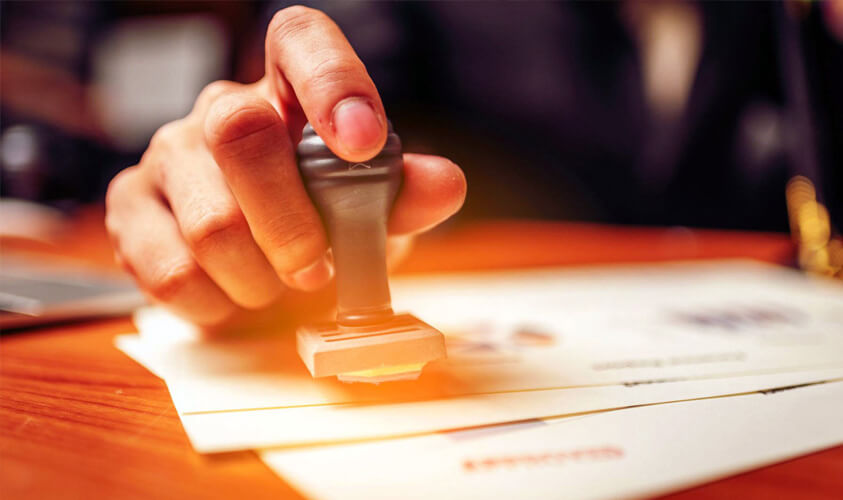The United Arab Emirates (UAE) has become a magnet for individuals seeking new opportunities, offering a thriving economy, high standard of living, and attractive tax benefits. Every year, thousands of people from various corners of the world aspire to live and work in the UAE. However, before obtaining legal residency, expatriates must navigate a range of bureaucratic processes. One critical step in this journey is obtaining UAE Embassy attestation. This procedure ensures that personal, educational, and professional documents are legally recognized and accepted by UAE authorities. Without this attestation, securing a work visa, residence permit, or even enrolling in educational institutions becomes nearly impossible.
In this article, we will explore the crucial role of UAE Embassy attestation in obtaining legal residency. We’ll discuss the various types of documents that need attestation, the step-by-step process of attestation, and why it is a pivotal part of the legal residency process in the UAE.
What is Embassy Attestation?
Embassy attestation is the process of authenticating or verifying the genuineness of documents issued in one country for use in another. In the case of the UAE, foreign nationals need to get their documents attested by the UAE Embassy in their home country, as well as other relevant authorities, before these documents can be recognized by UAE officials. This process ensures that the submitted documents, such as educational certificates, marriage licenses, or birth certificates, are authentic and issued by legitimate entities.
Why is Attestation Important for Legal Residency?
Obtaining legal residency in the UAE requires proof of identity, qualifications, and other personal or professional credentials. These documents are crucial for visa applications, employment contracts, and obtaining essential services like medical insurance, housing, and banking.
UAE Embassy attestation is a form of legal validation that confirms the legitimacy of the documents and their origin. For the UAE government, this is a safeguard to prevent fraud, forgery, and misuse of foreign-issued documents. Without embassy attestation, the UAE authorities cannot verify the authenticity of an individual’s qualifications, leading to the rejection of residency applications.
Types of Documents Requiring Attestation
Different types of documents may require attestation depending on the purpose of your residency application. These documents typically fall into three broad categories: educational, personal, and commercial.
1. Educational Documents
Educational certificates are perhaps the most commonly attested documents. Whether you are applying for a skilled job or enrolling in a university, your academic credentials need to be verified. Documents such as diplomas, degrees, and professional certificates issued by institutions outside the UAE must be attested to prove their validity. For example:
- Bachelor’s or Master’s degrees for employment purposes
- Professional certifications for specific job roles
- School transcripts or diplomas for educational purposes
2. Personal Documents
Personal documents establish the applicant’s identity, marital status, and other personal details. These documents are often required when applying for a family visa, marriage license, or legal guardianship. Key personal documents that require attestation include:
- Birth certificates
- Marriage certificates
- Divorce decrees
- Death certificates
- Police clearance certificates
3. Commercial Documents
For business owners or entrepreneurs seeking residency in the UAE through investment or company formation, commercial documents must also be attested. These documents prove the legitimacy of the business and the individual’s role within it. They include:
- Power of attorney
- Articles of incorporation
- Memorandum of association
- Financial statements
The Step-by-Step Attestation Process
Obtaining embassy attestation can be complex, involving several steps and interactions with various governmental and legal bodies. Here’s a simplified breakdown of the key steps involved in the UAE Embassy attestation process:
Step 1: Notary Attestation
The first step in the process is to have the documents notarized by a public notary in the country of origin. This verifies the authenticity of the signature on the document and ensures it is legally recognized by the government.
Step 2: Home Country Attestation
After notarization, the documents need to be attested by the relevant authorities in the home country. For example, educational documents typically require attestation by the Ministry of Education, while personal documents such as birth or marriage certificates are attested by the Ministry of Foreign Affairs or similar bodies.
Step 3: UAE Embassy Attestation
Once the home country’s authorities have verified the documents, they must be submitted to the UAE Embassy or Consulate in the country of origin. The embassy will further authenticate the documents, ensuring that they comply with UAE regulations. This is often the most crucial step, as the UAE authorities rely heavily on the embassy’s validation.
Step 4: UAE Ministry of Foreign Affairs (MOFA) Attestation
After the UAE Embassy has attested the documents, they must be presented to the UAE Ministry of Foreign Affairs (MOFA) for final attestation. MOFA serves as the last layer of verification, ensuring that the documents are properly authenticated and ready for use within the UAE.
The Role of Attestation Agents
Due to the complexity and time-consuming nature of the attestation process, many individuals and businesses opt to hire attestation agents or service providers. These agencies specialize in navigating the attestation requirements and procedures for various documents, saving applicants significant time and effort.
Attestation agents typically handle the entire process, from document collection to final submission to the UAE authorities. This can be especially helpful for those unfamiliar with the bureaucratic procedures in their home country or the UAE. However, it is essential to choose a reputable and reliable attestation service to avoid delays or complications.
Common Challenges in the Attestation Process
While the attestation process is straightforward in principle, several challenges can arise that complicate or delay the procedure. Some of the most common issues include:
1. Incomplete Documentation
One of the most frequent causes of delays is submitting incomplete or improperly prepared documents. Applicants must ensure that all necessary documents are gathered, correctly notarized, and submitted in the proper order.
2. Unclear Legal Requirements
Different countries have different legal and bureaucratic processes for verifying documents, which can make the attestation process confusing for expatriates. It is crucial to stay informed about the specific requirements in both the country of origin and the UAE to avoid unnecessary delays.
3. Time-Consuming Bureaucracy
Each step in the attestation process can take time, and delays at any stage can significantly impact the overall timeline for obtaining legal residency. This is especially true in cases where the documents need to be processed by multiple governmental bodies across different countries.
4. Incorrectly Attested Documents
In some cases, documents may be incorrectly attested, leading to rejection by UAE authorities. This often happens when applicants bypass official procedures or fail to follow the correct attestation hierarchy, such as skipping the home country’s Ministry of Foreign Affairs step before submitting documents to the UAE Embassy.
Impact of UAE Embassy Attestation on Residency Applications
UAE Embassy attestation is more than just a legal formality—it plays a pivotal role in the entire residency process. Without properly attested documents, applicants face the risk of rejection when applying for work permits, residence visas, or family visas. Employers may also refuse to process an employment contract if the required educational qualifications are not properly verified.
Moreover, attestation is often a prerequisite for accessing essential services in the UAE. For instance, without attested marriage certificates, spouses may find it difficult to sponsor each other for residency. Similarly, attested educational documents are required when enrolling children in schools or applying for university admission.
In the UAE’s highly regulated environment, the importance of complying with legal and procedural requirements cannot be overstated. Embassy attestation not only ensures that foreign nationals’ documents are legally recognized but also helps build trust between expatriates and UAE institutions.
Conclusion
In conclusion, UAE Embassy attestation is a vital step in obtaining legal residency in the UAE. The process verifies the authenticity of personal, educational, and commercial documents, ensuring they meet the legal standards set by UAE authorities. While the process can be complex and time-consuming, it is essential for establishing residency, securing employment, and accessing key services within the UAE.
Understanding the attestation process, gathering the required documents, and following the correct procedures are crucial for a smooth transition into life in the UAE. Whether for professional, personal, or business purposes, ensuring that your documents are properly attested by the UAE Embassy can significantly impact the success of your residency application.







